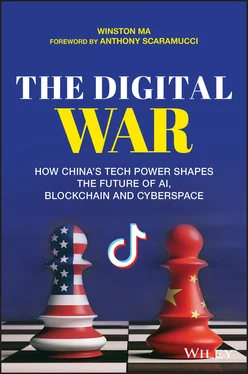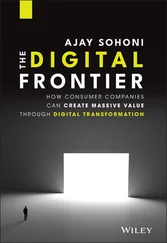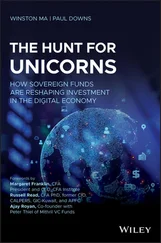Still, China's mobile internet market shows no sign of slowing down in innovation, and the competition between the leading giants and the hungry upcomers is ever fierce. The mobile infrastructure, corresponding data accumulation, and industries digitalizing their businesses along the way, collectively provide a powerful foundation for China's AI innovation and digital transformation today.
Part Two: China's Digital Transformation and Innovation
The chapters in Part Twocover in detail Chinese companies' digital transformation, which is reshaping retail, financial, entertainment, transportation, lifestyle services, education, smart hardware, and many traditional industries. China is one of the most interesting innovation centers in the world and where the new generation startups are pioneering 5G iABCD innovation.
Chapter 3: Big Data on the Digital Middle Class
There is no longer a single, one-size-fits-all definition of the Chinese consumer. The key to all industry sectors is to personalize products and services to serve the varying needs and demands of millions of Chinese consumers. In this chapter, the case studies of Hema “new retail”, Pinduoduo C2M social e-commerce, and “Big Data” movies are all successful examples of consumer data-driven OMO (online-merge-offline) models. E-commerce giants such as Alibaba and JD.comhad acquired “bricks-and-mortar” stores way before Amazon had acquired Whole Foods. Now they set up fully “digitalized” stores to integrate online and offline operations and data.
Chapter 4: The AI-powered Internet Celebrities and Fans Economy
This chapter covers the digital entertainment revolution in China, where average users, or fans, are at the center of the fans economy. New social media platforms are pivoting from “elite”-centered community toward the untapped grassroots crowds derived from smaller cities, younger age, lower social status, and less glamorous-looking groups. Numerous examples of the new fans economy are examined: the bullet screen of Bilibili, the boom of online novels, the revival of Weibo (China's Twitter), the struggles of video streaming sites like Youku and iQiyi, and the rise of short-form video platforms like Tik Tok and Kuaishou.
Chapter 5: The Heartland of Blockchain and Fintech
This chapter discusses many successful examples of China's internet finance and fintech innovation, including mobile payments, crowdfunding, consumer credit system, asset management, and corporate finance. China is far ahead of the rest of the world in terms of how widely internet finance is used. China's fintech success is not just from unprecedented technological innovation, but also from integrating tech tools with real-economy needs, which is best illustrated by its distinctive approach to Bitcoin and blockchain technology (supply chain finance is the best example of the latter).
Chapter 6: O2O and the Shared Economy
The shared bikes and then “everything share” (essentially “mobile renting”) is a unique Chinese phenomenon. The common denominator of all the “sharing” ventures, from cars and bikes to basketballs and refrigerators to clothes and massage chairs to luxury handbags and phone chargers, is the mobile payment mechanism for which China is by far the global leader. Unlike the United States, mobile renting of everything is a bigger story—for China and emerging markets—than putting existing under-utilized cars (Uber) and spaces (Airbnb) to more frequent use.
The bigger “shared economy” is on the major O2O platforms like Meituan, Alibaba, and Didi. They create affordable infrastructure for startups by allowing them to share the on-demand transportation system and a massive fleet of delivery staff, as well as additional operational systems like smart payment and location-based targeted consumer marketing, rather than own them. When everyone was ordering take-outs during the coronavirus outbreak, Meituan and Ele.me cultivated a clan of “virtual restaurants” that operate only out of a kitchen.
Chapter 7: From C2C to 2CC: “Innovated in China”
Compared to their US counterparts, Chinese mobile apps are more advanced for content, social and commerce, and they are more transaction-based. The examples in this chapter show that the new trend is “to China Copy” (2CC), that is, Western companies copying new business models that are coming out of China. The new generation Chinese companies are shifting their focus, from “innovative models” to “innovative technology (iABCD)”, from “online platform building” into “digital technology research”. From copiers to originators, Chinese tech companies are showing the way forward with leading-edge advances that rival the West.
Chapter 8: Land of Big Data and Its Legal Framework
If data is the new oil, then China is the new OPEC. The country's massive population—nearing 1.4 billion people—offers researchers and start-ups valuable human data for AI training. Meanwhile, Chinese users are demanding more data privacy. After years of Chinese internet companies building business models around Chinese people's lack of awareness about privacy, users are becoming more knowledgeable, and they are getting angry about companies abusing their personal information. China is putting together a comprehensive legal framework to protect individual data rights from large internet platforms, and China's legal development as part of the global digital governance system simply cannot be ignored.
Part Three: Shared Digital Future
China in Asia and the United States in the West are forming two leading innovation centers of different strengths. China's digital economy is expanding overseas, both forming development partnerships with emerging markets and challenging America's tech supremacy.
Chapter 9: The Tech Cold War
China's ambitions and progress have led to talk of an artificial intelligence arms race with the United States. Cross-border tech investments are increasingly viewed through national security lenses by the two countries. In recent years, more and more deals have been blocked, corporations sanctioned, and AI exchanges restricted. Hence, the digital economy is in a vital conflict and crisis: the global tech world, together with at least part of the world economy, has now fractured into two – and potentially more, considering Europe, Japan, and other regions – spheres of influence. Nations and companies around the world are being forced to choose sides in a conflict that is fracturing global supply chains and tech innovation.
Chapter 10: The Silk Road in Cyberspace
“Digital Silk Road (DSR)” is the digital prong of China's Belt and Road Initiative (BRI), which seeks to strengthen infrastructure, trade, and investment links between China and the rest of the world. While many Western observers emphasize the data security risk of the DSR, the DSR initiative does help the unmet needs of digital connectivity in emerging markets, from online education in Africa, smart health in the Middle East, to local entrepreneurs in ASEAN countries. The DSR – at least the global connectivity concept behind it – is an important initiative for an increasingly fractured tech world. All global stakeholders must cooperate to ensure that digital innovation continues to serve as the growth engine for the world.
PART I From “Mobile Economy” to “Digital Economy”
China is the largest homogenous digital market in the world, unified by the same language, culture, and mobile payment system. The first two chapters provide an overview of China's mobile internet revolution during the last few years and how the mobile economy set up the foundation for the subsequent industrial revolution.
Читать дальше












